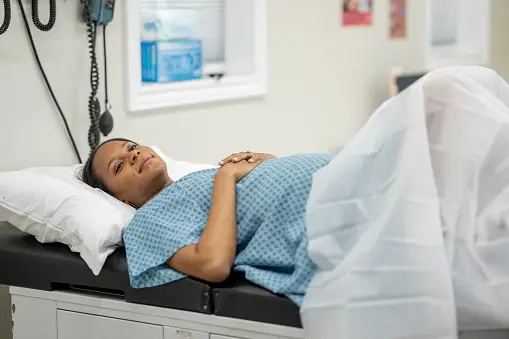Human papillomavirus (HPV) is the most common viral infection of the reproductive system worldwide, and most sexually active men and women will be affected at some point in their lives.
It is highly contagious and most infections are contracted after becoming sexually active. Human papillomavirus is a deadly virus because it accounts for nearly all cases of cervical cancer in women. It is also responsible for cancer of the anus, oesophagus, head, and neck.
Over 100 strains of HPV exist, and they are classified as low-risk and high-risk. Fifteen types of these strains are cancer-causing infections.
Human papillomavirus infection is most prevalent in younger age groups in Nigeria. It is responsible for most cancer deaths among women after breast cancer.
Risk factors for contracting HPV
Some contributing factors that may render a person susceptible to contracting HPV infections include;
- Unsanitary habits
- Tobacco use
- Long-term hormonal contraception
- Unprotected sex
What is cervical cancer?
Cervical cancer is the second most common cancer affecting women in underdeveloped and developing countries of the world. Cervical cancer is also the fourth leading cause of cancer deaths in women.
Cervical cancer is the cancer of the cervix. The cervix is the lowest part of the uterus (where a baby grows during pregnancy). It acts as a connector from the uterus to the vagina. The cells on the cervix begin to change to precancerous cells. However, not all cells will change completely to cancer. This is why early diagnosis is important.
Cervical cancer doesn't just appear in a woman's life. It's a developmental stage, and the initial step is contracting the HPV infection. This is also known as an oncogenic type of HPV. In Nigeria alone, cervical cancer is most common among women aged 14 to 55. It is Nigeria's second leading cause of cancer deaths after breast cancer.
Symptoms of cervical cancer
- Watery or bloody vaginal discharge with a foul odour.
- Heavier and longer menstrual periods.
- Vaginal bleeding after intercourse between menstrual periods or after menopause.
- Pelvic or abdominal pain.
- Fatigue.
- Loss of weight.
- Diarrhoea or bleeding from the anus when pooping.
How to prevent cervical cancer
Cervical cancer can be prevented in the following ways:
- The practice of safe sex
- HPV vaccination
- General awareness
What is the HPV vaccine?
The HPV vaccine provides 90% protection against HPV infections and cervical cancer in women. The vaccine available in Nigeria is the Gardasil vaccine.
The Gardasil vaccine is for girls between 9 to 14 years old in Nigeria at no cost. However, girls up to 26 can receive this vaccine if they have never been vaccinated against HPV infections. The protection from the HPV vaccine can last up to 12 years in a woman's life.
Who can take the HPV vaccine in Nigeria?
Eligible people who can receive the HPV vaccine in Nigeria include;
- Girls between 9 and 14 years
What is the recommended dose?
Two doses of the vaccine per person.
Who shouldn't receive the vaccine?
- A pregnant woman
- A person with an allergy to yeast
- A person who has already received the HPV vaccine
Side effects of the HPV vaccine
Like any other medicine, vaccines have side effects. Some people have reported mild side effects like soreness or body weakness. The most common side effects include;
- Muscle pain
- Soreness around the injection shot
- Headache
- Fever
- Dizziness
The HPV vaccine is safe and a proactive step in preventing cervical cancer in young girls and adolescents in Nigeria. Spread the awareness and protect the reproductive health of girls and women.










Comments